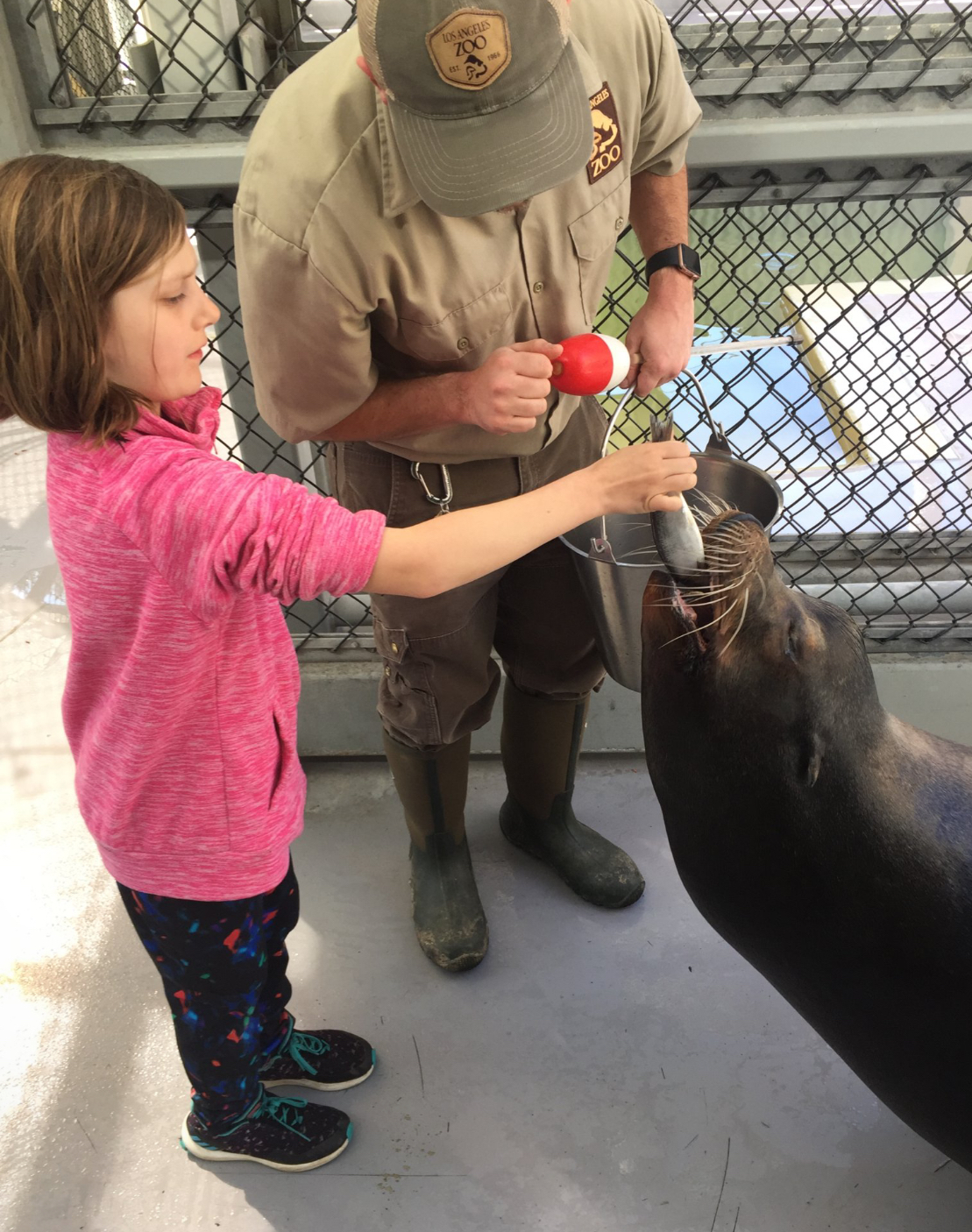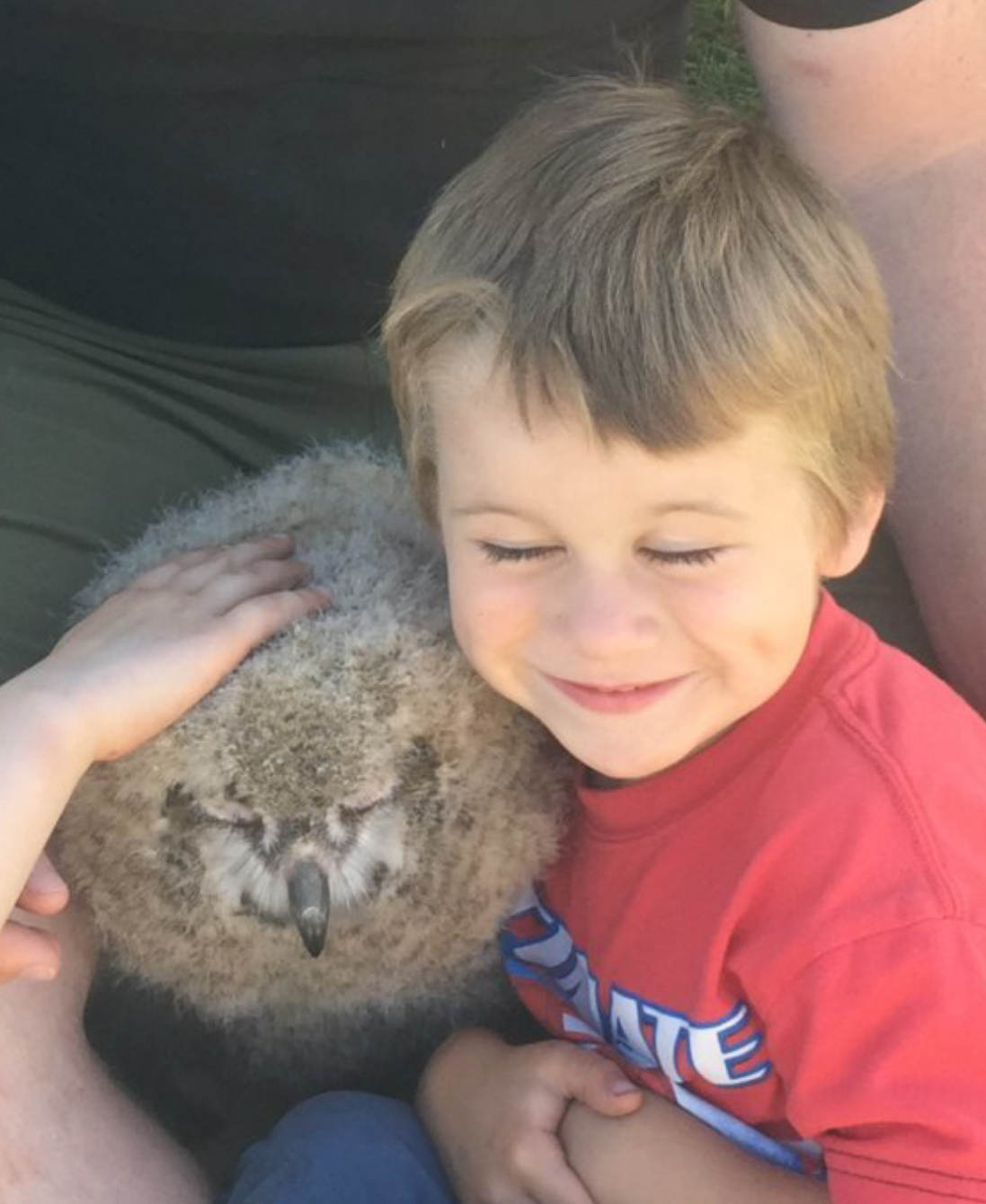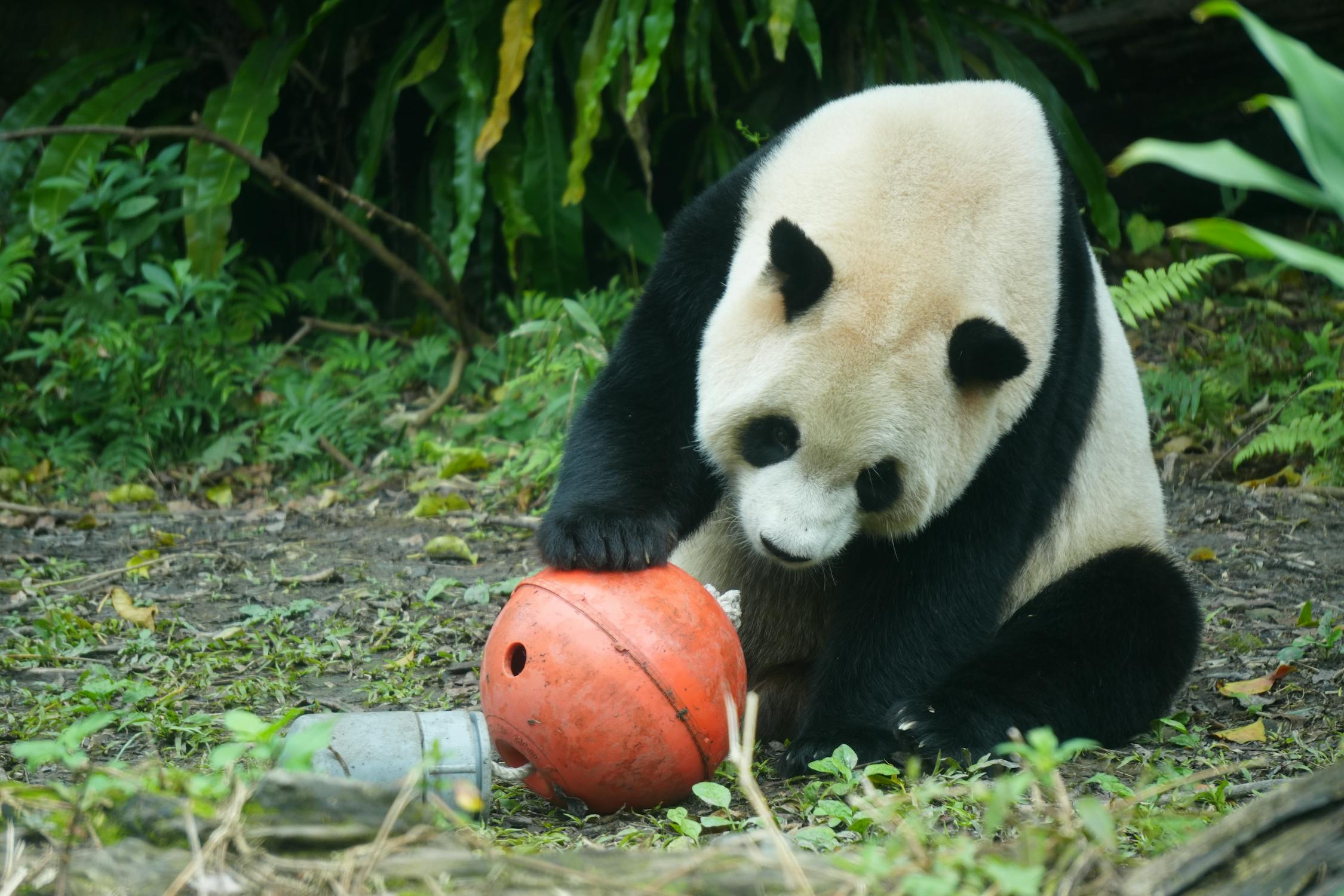In honor of National Zookeeper Week, I want to share the traits of a great zookeeper.

It’s easy to think zookeepers live an easy life, cuddling cute animals and playing with exotic animals. But being a zookeeper can be a challenging career. There are demands to operate at a high level because little mistakes can have devastating consequences. It is a physical, mental, and emotional job with a high level of burnout.
Zookeepers wear many hats working as a cleaner, trainers, dietitians, caretakers, and nurses to be a zookeeper today. They are required to have a college degree, experience, and professionalism to break this highly competitive field. The high level of required education and experience for an entry-level zoo job can make it hard for many to break into the field and make a living.
So, how can one succeed in becoming the best zookeeper? Certain character traits can help you thrive. If we’re honest, these things come naturally to some; we all have strengths and weaknesses. The great thing is most of these traits can also be developed with time, experience, and a commitment to one’s growth. Possessing these traits is a first step toward becoming a zookeeper or wanting to grow in the field.
Ability to Think Objectively
Objectivity – “Not influenced by personal feelings or opinions in considering and representing facts” – Oxford Dictionary
Thinking objectively is being free of favoritism and bias. Feelings and emotions can often get in the way of good decision-making. This is especially hard for people working in the animal field. Zookeepers strive to develop a strong relationship and connection with the animals they work with. These deep relationships are good in many ways. But if left unchecked can lead to harmful emotional connections.
If an emotional connection becomes the bases for decision-making harmful assumptions can be made. Anthropomorphic (attributing human feelings to animals) thinking can become the base of decision-making, without people realizing it. These decisions lead to incorrect applications. Have you ever heard people proclaim things like “That animal is sad,” or “That animal looks happy.” But they have no reference or data on which to base these observations, other than their feelings. Emotions and behavior go hand-in-hand and can be hard to separate. Animal emotions can be hard, if not impossible, to measure. Good zookeepers, therefore, work to stay objective so decisions are made in the animal’s best interest.
Good Observational Skills

Good observers notice the details and little things. The little things quickly add up when you are a zookeeper. Good observation skills help you notice subtle, micro behaviors in an animal. This is key to becoming a great animal trainer, catching medical issues early, and seeing changes in the animal’s physical environment. Observational skills help provide the highest level of care because it is PROACTIVE. When working in animal care proactive measures are key! Pay attention to the animal but also to the surrounding environment. When you focus on what is in front of you, it is easier to be aware of your surroundings.
For example. Can you know if an enrichment was successful without observation? Can you know what an animal’s normal behavior is (so you can know when something is wrong) without observation? Going hand-in-hand with practical observation skills is scientific observation practices. Observation is foundational to good science. Knowing how to track observational data, analyze it, and then apply that observation should be fundamental.
A Commitment to the Positive

Positivity is not being happy or saying “yes” to everything but developing a persistent attitude that allows you to work through hard things. This doesn’t come naturally but is a deliberate and constant choice. A positive mindset will help you become a resilient and confident zookeeper. People who think positively can confidently tackle challenges while still finding joy, energy, and contentment.
There can be many challenges and pressures to face when being a zookeeper. Helping animals through medical issues, losing animals, constant feelings of not doing enough, making hard decisions, and the heavy weight of responsibility for one’s care can all take an emotional toll. The burnout rate, or compassion fatigue, is very high for zookeepers. According to an April 2023 ResearchGate survey, 91% of zookeepers had experienced burnout, and 60% left their position because of burnout.
It is common practice for zoos to focus on positive reinforcement training and positive animal welfare. The same can and should be applied to the workers. Stop focusing on the negative and the things you cannot change and instead focus on the positive. You will begin to see more of what you are focused on. The decision is yours to make so learn how to leave your baggage at home.
Take Responsibility

Taking responsibility for your actions and decisions is the mark of someone who understands what it takes to provide the highest level of animal care. Animal behavior is often a reflection of the ability of its caretaker. It can also be a product of its environment (although true, this statement is oversimplified). Animals, in the care of man, become dependent on people to provide for their needs. People are the ones who get to choose the environment, habitat, cage mates, diet, and enrichment. Therefore, when an issue arises it is the sole responsibility of the caretakers to take accountability. Only by taking responsibility can change happen.
A part of taking responsibility is to leave out the ego and pride. Egotistic and prideful people are self-focused. Great zoo keepers are those who can humbly focus on and take the initiative to provide the best care to the animals they are responsible for.
Using an animal training example, an animal is not doing the desired behavior so you conclude something like “This animal should know this, why is it being lazy?” This thinking is not helpful because it is based on assumptions (remember being objective) putting blame on the animal and taking no responsibility. By taking responsibility for an animal’s behavior you might instead conclude something like “Did I progress too quickly?” “Am I sending wrong or sloppy cues?” Or “Where did the behavior break down, and why?” Taking responsibility allows you to make the needed adjustments that can lead to productive change.
Always a Learner

Lifetime learners seek to grow. Learners are not satisfied with staying stagnant but look for, or create for themselves, opportunities to learn. Learning becomes a lifelong habit fueled by curiosity and inquisitiveness to know and understand things. Learners often love goals, making progress, and being open to change. A learner keeps an open mind and is ok sometimes getting outside of their comfort zone to learn something new. Taking ownership and showing initiative is also a trait of a learner.
Good zookeepers will need to be a learner no matter their experience. The field is rapidly growing, sharing new information, researching, and best practices are constantly changing. Zookeepers who are learners can become students of their animals. Being a student of your animal means having an open mind and having the flexibility to allow animals to teach you. Every animal has something new it can teach you if you are open to it and aware. Having a closed mind and being a know-it-all will keep you stuck as a zookeeper. Animals suffer when people are not willing to learn. Zookeepers should view every opportunity as a chance to learn from a mentor, an experienced zookeeper, and even someone with less experience than you. Don’t be afraid of or stifle the views and perspectives of others; they have more to teach you than you realize.
Good Communication and People skills

Zookeepers often get labeled with stereotypes of having bad people skills, being introverted or awkward, and not fitting in. But that’s not always the case, or at least it shouldn’t be. Contrary to what most people think, a large part of any zookeeper’s job is communication and working with people.
Zookeepers are often required to lead keeper chats, perform in shows and presentations, lead training demonstrations, give tours, engage with zoo guests, and work well with their co-workers. Think about all the times you’ve visited a zoo. If you have had an opportunity to engage with a zookeeper who takes the time to share with warmth and passion, it leaves an impact.
If you want to be a zookeeper because you don’t like people, please don’t become one. You will work with people just as much, if not more, as a zookeeper. Being able to provide the highest level of animal care is dependent on people communicating and working together. When multiple people care for animals, vital information must be passed on and shared. Animal care hinges on the ability of people to work well together, communicate and share information, and create a healthy work environment.
Animal advocacy is another component that hinges on the ability of the zookeeper to communicate well. You often hear animals called ‘Ambassador Animals.’ These are primarily animals used for shows and interactions, although some zoos call all zoo animals ambassadors. If we are being honest, people are just as much, if not more, the ones who are the ambassador. Animals cannot talk; people can. Zookeepers are the ones that can bring animals and zoo guests together to give that connection. Animals rely on their keepers’ skills and passion to represent and educate on their behalf. That is a high calling and one that shouldn’t be taken lightly. Zookeepers have the privilege to be that voice for animals. Because of this, every zoo guest should be treated with dignity and respect, welcomed, and warmly engaged. The goal of every zookeeper should be to have the tools to articulate well and make information understandable.
Be a Hard Worker

Working hard is a trait of a good zookeeper, so it should be added. You cannot be afraid of hard work or getting a little dirty to work at a zoo full of animals. Zoo-keeping is a physical and demanding profession. Working outside during all types of weather and on holidays and weekends is common practice for zookeepers. Caring for zoo animals is a constant cycle of feeding, cleaning, and repeating. Zookeepers care for animals during sickness or injury often being the ones to clean and treat wounds. Daily they have to clean up and analyze animal feces. Zookeeper responsibilities also include cleaning the animal’s enclosure. This can include scrubbing water features, wiping down windows, weeding, and providing maintenance. A whole day might go by where you never sat down! Being confident with and knowing how to use power tools is an important skill and bonus to develop.
Hard workers are also those who understand how to be productive and effective. It is a learned skill that comes from intentionality and practice. This skill is often developed during childhood, so it comes more naturally to some. Working hard is not constantly working but knowing how to work efficiently and effectively. Hard workers can ask questions like “Why do we do it that way,” and then figure out how to do it faster and better. Zookeepers should strive to have a hard work ethic with strong self-discipline.
Written by,
Stephanie Gaines





4 responses to “Traits That Make A Great Zookeeper”
Stephanie,
You put a lot of great information in your blog. I learned a lot about care of dos and don’t with pets and animals. Great start! 👏 Please keep your writing up.
Thank you,
Charlene
Thank you so much for your kind words and encouragement. I’m excited to see where this leads. I’ve always been passionate about learning, researching, and understanding more about animal care.
This is great information! Thank you for sharing these truthful words. I have learned that many get into the career of zookeeper because they do not like dealing with people, but then guest-facing stations are their biggest challenges of the career. On the other side of this, I’ve seen “introverts” light up and speak forever about an animal they enjoy working with to guests. The best quality of a zookeeper is a tough one!! But I think I’m going to go with observational skills-without that you miss out on so much and risk not knowing the animals you work with at all. But a good zoo keeper should have all the above traits.
Thank you for your reply Shelly! I appreciate your insights as a zookeeper. I agree with you, being an introvert does not mean you can’t communicate well! Thanks for that insight. A lot of people who might be labeled “introverts” are the most amazing speakers! I would definitely classify myself that way, well maybe not the amazing part. If you’re passionate and authentic about something it shows and that is probably the most important part!